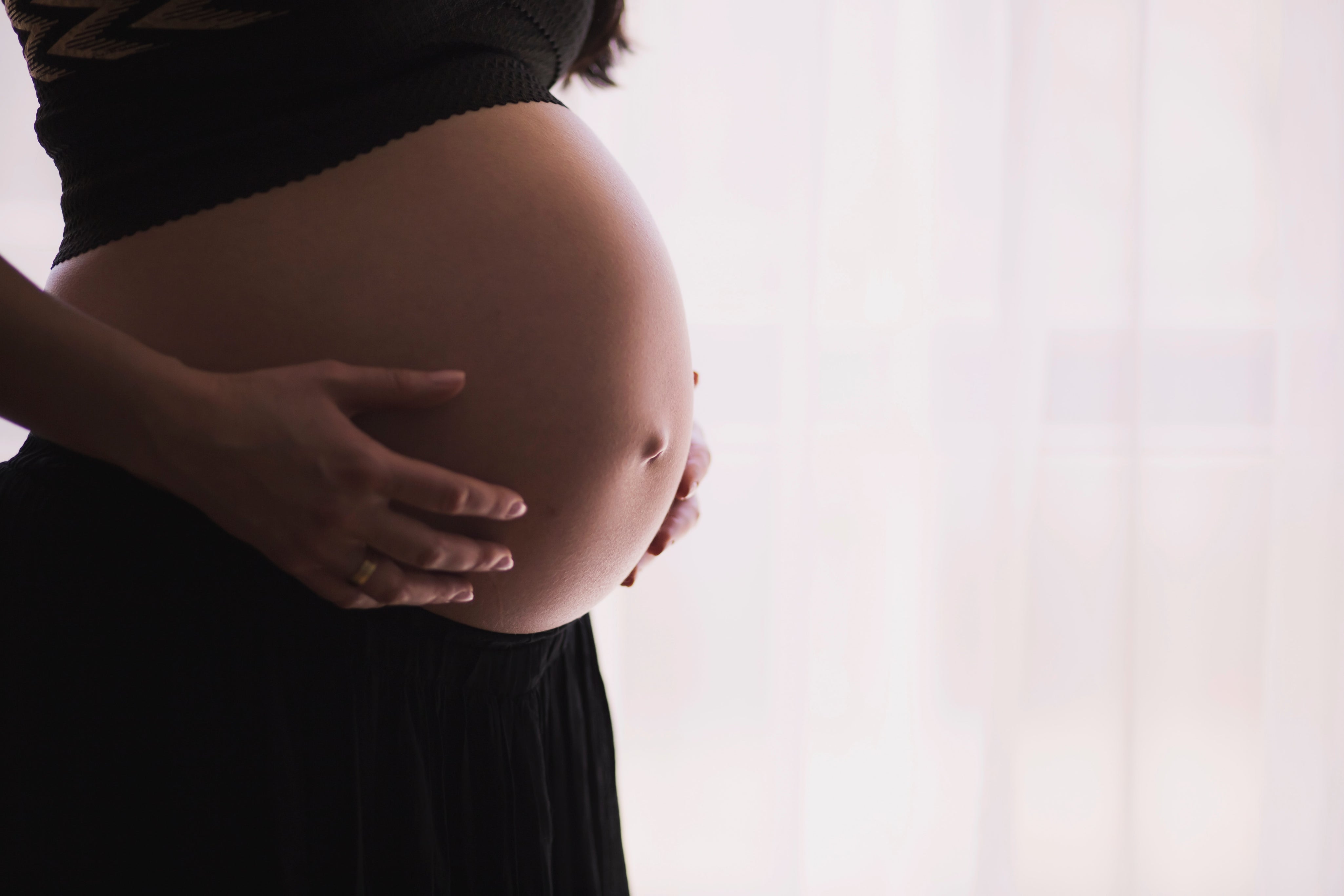Are Painful Periods Really a Sign of Good Fertility?

Periods are a natural part of a woman's reproductive health. However, many women experience period pain. This can cause confusion and uncertainty about reproductive health and fertility.
In this guide, we look at the connections between period pain and fertility. We'll also explore the causes of period pain, and discuss how to recognise symptoms of infertility.
Painful Periods and Fertility: Dispelling the Myth
Experiencing painful periods doesn't mean you have good fertility. Fertility is complex, and period pain alone doesn't indicate reproductive health. Infertility can have various underlying causes, and it's essential to seek professional guidance if concerned about fertility or severe period pain. Many factors beyond period pain influence the fertility of each woman's unique body.
Read on as we explore the connection between period pain and fertility further.
What Causes Period Pain?
Menstrual cramps can range from mild to severe, and vary from woman to woman. The following factors can cause or contribute to period pain:
- Hormonal changes: The changing hormones during the menstrual cycle make the uterus lining shed, causing cramps and discomfort.
- Muscle contractions: The uterus contracts to expel its lining, resulting in painful sensations.
- Endometriosis: Endometriosis is when endometrial tissue grows outside the uterus, causing inflammation, pain, and sometimes problems getting pregnant. Symptoms of endometriosis include severe period pain, pain during or after sex, pain when peeing or pooing, and feeling sick.
- Adenomyosis: Adenomyosis occurs when tissue invades the muscular wall of the uterus, causing severe pelvic pain and heavy menstrual bleeding.
- Fibroids: Uterine fibroids are growths in the uterus that can cause pain, heavy periods, and, in some cases, fertility problems.
- Pelvic inflammatory disease (PID): PID is an infection that can cause period pain on the left side during your menstrual cycle. It can also cause pelvic pain and fertility problems if left untreated.
Common Female Infertility Symptoms: What to Look For
Being aware of infertility signs is important for finding issues early and getting help. While fertility can be complicated, knowing these symptoms can help you make informed decisions about your reproductive health.
- Irregular periods: Keep an eye on changes in your menstrual cycle, like cycle lengths or missed periods. Irregular periods may signal potential fertility issues and need further checking.
- Pain during intercourse: Feeling pain during sex may be a sign of infertility and needs medical attention. It could be due to issues like endometriosis, pelvic inflammation, or ovarian cysts, which can impact fertility.
- Changes in menstrual flow: Keep an eye out for unusual changes in your menstrual flow. Very heavy periods or light periods could be a sign of fertility concerns.
- Hormonal imbalances: Hormonal imbalances can link changes in hair growth patterns or breast size, which can affect fertility. Monitoring any noticeable hormonal changes can be helpful.
- Pain or discomfort in the pelvic area: If you experience ongoing pelvic pain unrelated to your period, consult a doctor. It could be a sign of fertility problems or conditions like endometriosis or fibroids.
- Age-related factors: As women age, fertility naturally declines. If you have been trying to get pregnant for over a year, consider speaking with a doctor.
- Family history: If you have a family history of fertility issues, talking with a doctor can help spot any potential challenges.
Remember that experiencing one or more of these symptoms doesn't necessarily mean you are infertile. Several things can affect fertility. Detecting problems early helps manage them and increases the chances of a successful pregnancy.
If you're worried about your fertility or have ongoing symptoms, seeing a doctor or fertility specialist can help. They'll give you clear advice and the right care for your needs.
How To Test Your Fertility
If you're concerned about infertility or have symptoms worrying you, speak to a healthcare expert. A fertility specialist can perform tests to find out what might be causing fertility issues. Here are some things to think about:
- Schedule an appointment: Book an appointment with a doctor or fertility specialist for an evaluation of your reproductive health. They can provide expert guidance and care based on your individual needs.
- Keep track of your menstrual cycles: Write down the dates and any changes you notice. This can be useful when talking to a doctor about any possible fertility concerns.
- Share your concerns: Be open and honest about any worries or symptoms you may be experiencing during your visit. Being honest helps them understand your health and give you advice that fits your needs.
- Take the tests your doctor suggests: This might include checking your hormone levels, using ultrasound scans, and other exams. These tests will help decide the best steps to take for your fertility.
- Follow professional advice: Your doctor will tell you what to do based on the test results. They may suggest treatments or changes to help you get pregnant. Follow their advice carefully to increase your chances of having a baby.
Remember, getting help early can make a big difference in dealing with fertility issues and planning for your reproductive health. Trust in the expertise of healthcare professionals to support you in making informed decisions about your fertility and overall well-being.
Relieving Menstrual Cramps for Better Well-Being
Besides understanding the link between period pain and fertility, it's essential to ease menstrual cramps for better well-being during menstruation. Here are some simple remedies to help manage period pain:
- Over the counter pain relievers: For severe period pain, consider taking NSAIDs like ibuprofen or naproxen to ease cramps and discomfort. If your pain is more moderate, painkillers alone can be effective.
- Heat therapy: Using a hot water bottle or warm compress to the lower tummy can soothe muscles and help ease pain.
- Exercise and relaxation techniques: Regular exercises, such as yoga or meditation, can reduce menstrual cramps and help you feel relaxed.
- Diet changes: Eating a healthy diet with fruits, veggies, and whole grains can help with period pain and overall health.
- Wear comfy clothes: Period pants are comfortable, eco-friendly, and reusable, making them a great choice for an easy period. With various styles and sizes available, they provide maximum comfort and protection throughout your menstrual cycle.
Taking care of your body during your menstrual cycle can contribute to a more comfortable and positive experience. If pain is severe or doesn't go away with remedies, seek advice from a healthcare professional. Discovering effective strategies can greatly improve managing period discomfort and enhancing overall well-being during your cycle.
Final thoughts
Many women commonly experience painful periods, but they should not consider them the main indicator of good fertility. Pain during menstruation doesn't directly correlate with reproductive health. To maintain reproductive health, understanding the potential causes of period pain and recognizing symptoms of infertility are essential steps.
Remember, many factors influence each woman's unique body and fertility. Taking care of reproductive health can empower women to make smart choices and improve well-being during their reproductive journey. By staying informed and proactive, women can navigate their menstrual cycles and fertility with confidence and empowerment.
If you have concerns about your fertility or experience severe period pain, don't hesitate to seek professional help from a doctor. Talking to a doctor or fertility specialist can give you helpful advice and personalized care.
- Tags: Myths & Facts Periods



